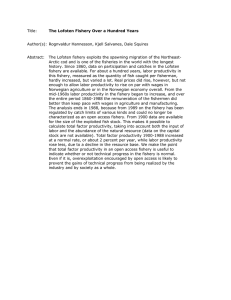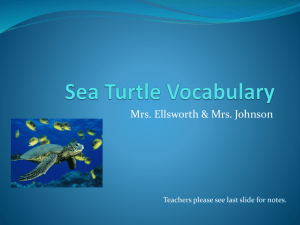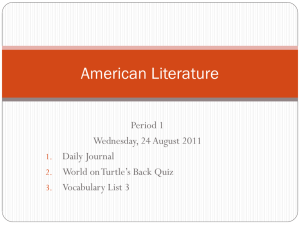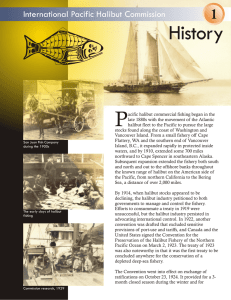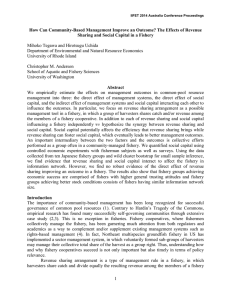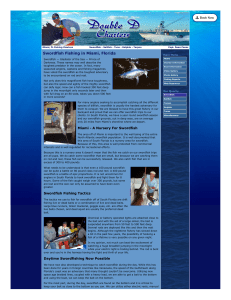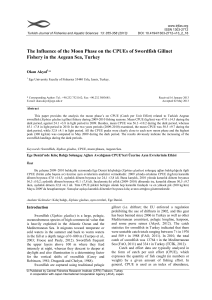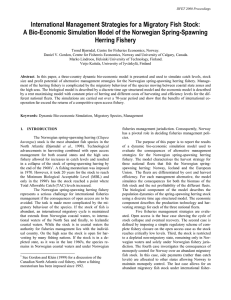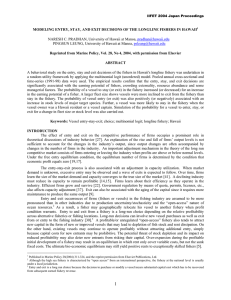Document 11142194
advertisement
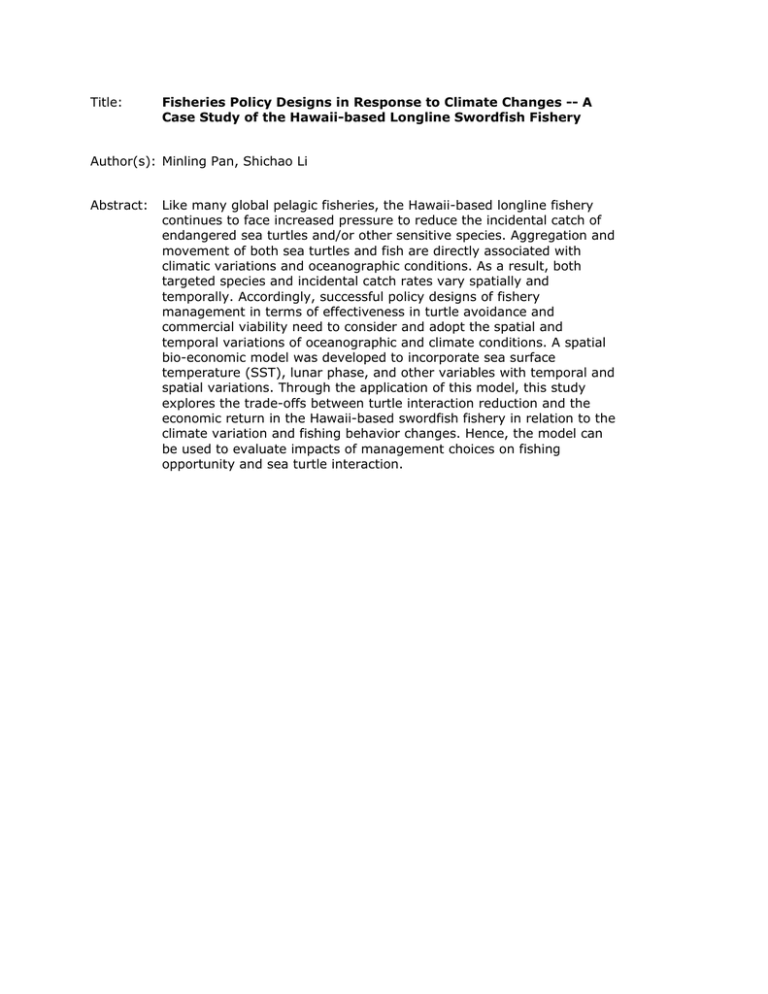
Title: Fisheries Policy Designs in Response to Climate Changes -- A Case Study of the Hawaii-based Longline Swordfish Fishery Author(s): Minling Pan, Shichao Li Abstract: Like many global pelagic fisheries, the Hawaii-based longline fishery continues to face increased pressure to reduce the incidental catch of endangered sea turtles and/or other sensitive species. Aggregation and movement of both sea turtles and fish are directly associated with climatic variations and oceanographic conditions. As a result, both targeted species and incidental catch rates vary spatially and temporally. Accordingly, successful policy designs of fishery management in terms of effectiveness in turtle avoidance and commercial viability need to consider and adopt the spatial and temporal variations of oceanographic and climate conditions. A spatial bio-economic model was developed to incorporate sea surface temperature (SST), lunar phase, and other variables with temporal and spatial variations. Through the application of this model, this study explores the trade-offs between turtle interaction reduction and the economic return in the Hawaii-based swordfish fishery in relation to the climate variation and fishing behavior changes. Hence, the model can be used to evaluate impacts of management choices on fishing opportunity and sea turtle interaction.



